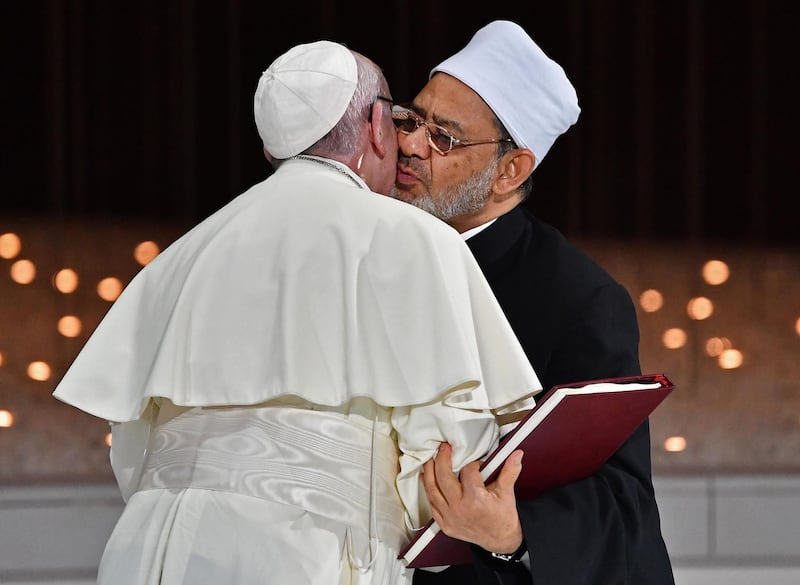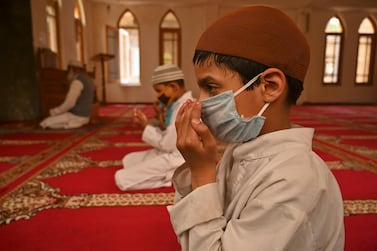Eleven days ago, the Higher Committee of Human Fraternity called for people from all faiths to join together on May 14 for a day of prayer, fasting and works of charity in the light of the coronavirus pandemic.
Pope Francis, head of the Roman Catholic Church, and Sheikh Ahmed El Tayeb, Grand Imam of Al Azhar and Chairman of the Muslim Council of Elders, have both welcomed the HCHF’s call. Today, it is echoed by religious leaders around the world, eager to take part in a global prayer for healing.
From the UAE’s Hindu community and the Chairman of Gurunanak Darbar Sikh Temple, Surender Singh Kandhari, to Poland’s Chief Rabbi, Michael Schudrich; from the Lutheran World Federation, an international protestant organisation, to leaders of many of the Christian sects of the Middle East: religious representatives worldwide have decided to pray together today.
They are also joined by political figures and institutions, such as Indonesian President Joko Widodo and the African Union, in the aim of bringing humanity closer together even as half of the world population is under lockdown.
In the age of physical distancing, it is difficult to imagine that, a little over a year ago, a multitude of people flocked to the UAE to meet Pope Francis. More than 180,000 worshippers joined him in prayer in Zayed Sports City last February. The Pope’s trip to the country was not only a great gift to the Catholic community in the region. It also held strong symbolism and made history as the very first official papal visit to the Arabian Peninsula, the birthplace of Islam, promoting a message of peace and tolerance. The visit resulted in the signing of a Document on Human Fraternity by Pope Francis and Sheikh Ahmed El Tayeb to advance tolerance and understanding between religions. The goal of the HCHF is to bring religious leaders, scholars and public figures together to advance the document’s cause.
This spirit of compassion and solidarity is needed now more than ever as mankind faces a global health crisis of unprecedented proportions. Regardless of one’s faith and beliefs, prayer is common across religions and can be a means of bringing humanity together at a time of strife. It can also bring a much-needed sense of communality to worshippers from different religions, especially when they have been unable to attend services and connect with their religious community for months. Places of worship have closed their doors in many parts of the world to help contain the spread of the coronavirus.
Genuine human connection, however, does not end with physical distancing. Religious figures, community leaders and individuals have found creative ways to keep in touch. Some people have hosted iftars on Zoom and other video-conferencing applications during Ramadan, and Pope Francis himself has made use of technology to guide worshippers during this troubling time, sharing video footage of Easter celebrations he held alone in the Vatican.
Today, let us join the call for international prayer and reflection for the sake of those most affected by the ongoing pandemic and its economic impact. The effort is not about any single religion or set of beliefs. It is about a shared expression of hope to see better days very soon.






